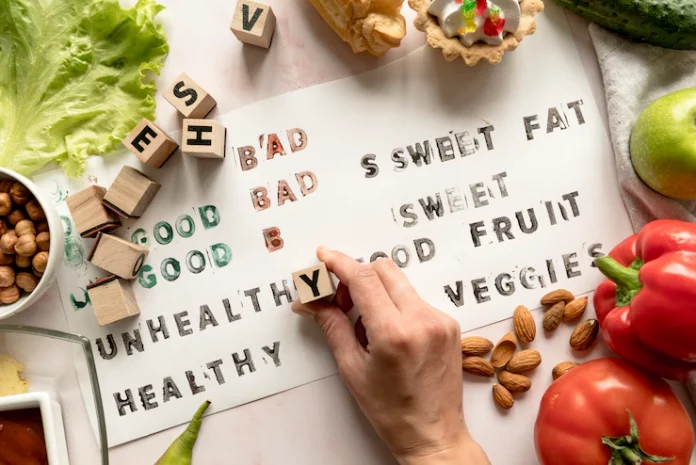When we talk about dieting, most of us have already been through it in another form. It is a different point of view through which beauty is commonly defined and viewed. In other words, diet culture simultaneously reflects socially prescribed standards based on things considered ‘perfect’ or ‘hot.’
To understand deeply more about diet culture and how you can ditch it. But, first, understand the meaning of diet culture.
What is Diet Culture?
Diet culture values thinness above everything else. It glorifies altering the body size, shape, and weight with the promise to attain an ever-changing and rarely achievable ‘thin’ ideal.
Diet culture remains powerful because it is interwoven in the most intricate layers of our lives.
Principles that uphold diet culture include:
- Healthism
- Materialism
- Competitiveness
- Patriarchy
- Individualism
- Perfectionism
It is normal not to see the diet culture coming as it distinguishes itself from highly valued ideals such as sharing ideals of well-being, honoring the body, and working hard.
Rejecting the Diet Culture Messages
Diet culture is not limited to the pointers in this blog. However, something that follows next is a long list of the most common diet culture lies. These tend to throw us off track, and we question ourselves.
Let’s examine the message and how we can reframe our through around these lies.
Weight loss in a healthy progress
When you consider a stand-alone metric, body weight is unhelpful and usually doesn’t point out the disease or health. In fact, weight loss could be a sign of dysfunction or disease. To truly define health, you need to look at the metrics like body temperature, resting heart rate, body composition, mental health, stress levels, sleep fitness, mineral storage, blood pressure, etc. Weight represents the relationship of a person with gravity, not health.
Eating clean
The top concern with this statement is the polarized thinking – that food is either dirty or clean or bad or good. There’s no moral value when we talk about food. Food is food; it is nourishment and fuel. The second concern we face is with the word ‘always.’ It is not quite realistic for humans to never or always do something and carry it on perpetuity with no ‘slips.’ Lastly, nothing specific you agree upon regarding the definition of ‘clean.’ Does it refers to something organic, or does it mean only whole foods and nothing packaged?
Well, it is open to interpretation. Instead, it would help if you focused on adding more nutritious foods to the diet (lean proteins, starchy veggies, leafy veggies, and fruits) rather than eliminating or taking them away. Food is not bad or dirty. Food is usually energy-dense or nutrient-rich, and sometimes it is both.
Sugar is an evil
The message should be that excess sugar could cause concern. For example, consuming sugar throughout the day may cause blood sugar control problems, nutrient deficiency, and dental issues. On the other hand, enjoying sugar in small quantities, such as tea, coffee, or desserts, is perfectly acceptable.
Bread may lead to weight gain
Bread is still good, as you think it should be. It is a staple in most meals. It is also one of the enjoyable food products and offers quality nutrients (depending on the micronutrient and fiber content). Bread, alone, won’t result in weight gain directly. The overconsumption of calories could be the real cause of weight gain. Unless you have a bread allergy, enjoy it as you like. For better blood sugar control, choose whole-grain options. You can also pair it with cheese, natural nut butter, or other fat or proteins.
Work out to earn food or burn calories
No one needs to earn food. However, we are all physical beings, and as the nature of our existence signifies, we need to consume food and maintain our body health and weight. The essential thing to note here is to be mindful of honoring hunger cues, enjoying regular physical movement, and staying within a reasonable calorie intake.
Exercise should not be a punishment as a way to earn a pizza slice or consume dessert. Food is not money that should be exchanged for work.
Conclusion
We think it is not likely to eradicate the insanity or diet culture of its messages. But we can call them out and recognize them for what they are. Diet culture is all about restriction and image. A scientific, effective, and valid approach to achieving optimal health is rooted in patience, behavior change, and finding the harmony between what you should enjoy and what your body needs.
Health and fitness are not about the body; it is about the relationship with your body. In fact, all you should think about is – Eat, Move, Enjoy!

